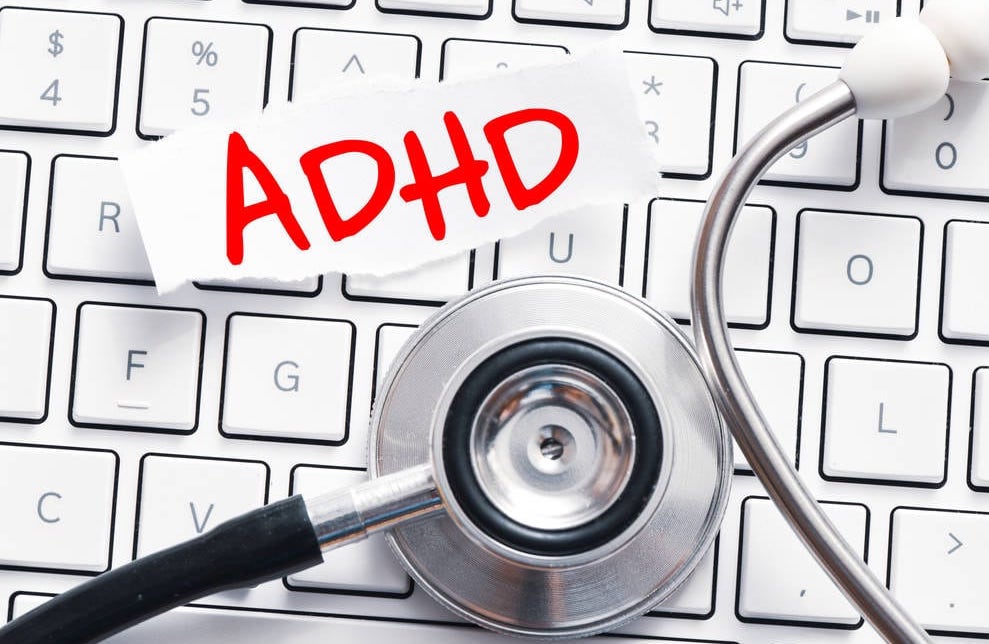1,355 total views
Modafinil is a prescription medication that is commonly used to treat narcolepsy, sleep apnea, and shift work sleep disorder. However, in recent years, it has gained popularity as a cognitive enhancer and is often used by people with Attention Deficit Disorder (ADD) and Attention Deficit Hyperactivity Disorder (ADHD). In this guide, we will discuss the use of Modafinil in ADD and ADHD, including its effectiveness, dosage, and potential side effects.

Table of Contents:
- Introduction
- What is ADD and ADHD?
- How Does Modafinil Work?
- Benefits of Using Modafinil in ADD and ADHD
- Dosage and Administration of Modafinil in ADD and ADHD
- Side Effects of Modafinil in ADD and ADHD
- Modafinil vs. Other ADHD Medications
- Precautions When Using Modafinil
- Conclusion
- FAQs
1. Introduction
Attention Deficit Disorder and Attention Deficit Hyperactivity Disorder are neurodevelopmental disorders that affect millions of people worldwide. These conditions can make it challenging to focus, concentrate, and control impulsive behavior. While stimulants like Ritalin and Adderall have been the go-to medications for treating ADD and ADHD, they have several potential side effects, and some people may not respond well to them. Modafinil, on the other hand, is a wakefulness-promoting agent that has been found to improve cognitive function without the risk of addiction or abuse.
2. What is ADD and ADHD?
These are two different but related disorders. ADD is a subtype of ADHD that is primarily characterized by inattention, distractibility, and forgetfulness, while ADHD includes hyperactivity and impulsivity in addition to inattention. These disorders are thought to be caused by a combination of genetic and environmental factors and affect people of all ages, genders and ethnic groups.
3. How Does Modafinil Work?
Modafinil works by increasing the levels of certain neurotransmitters in the brain that are responsible for regulating wakefulness and attention. Specifically, it enhances the activity of dopamine, norepinephrine, and histamine, which are all essential for maintaining cognitive function. Unlike stimulants, which can cause a surge in dopamine levels and lead to dependence, he has a more gradual onset of action and a longer duration of effect.
4. Benefits of Using Modafinil in ADD and ADHD
Research has shown that Modafinil can be an effective treatment, with several benefits over traditional stimulants. Some of these benefits include:
- Improved attention and concentration
- Increased motivation and productivity
- Reduced impulsivity and hyperactivity
- Fewer side effects than stimulants
- Lower risk of addiction or abuse
5. Dosage and Administration of Modafinil in ADD and ADHD
The recommended dose of Modafinil for treating is 200-400 mg per day, taken in the morning or early afternoon. It is important to follow your doctor’s instructions and not exceed the prescribed dose, as this can increase the risk of side effects. Drug is available in pills form and should be taken with water, with or without food.
6. Side Effects of Modafinil in ADD and ADHD

While Modafinil is generally well-tolerated, it can cause some side effects, particularly at higher doses. These side effects may include:
- Nausea
- Insomnia
- Anxiety
- Nervousness
- Dizziness
- Dry mouth
- Diarrhea
In rare cases, He can cause more severe side effects, such as an allergic reaction or a rash. If you experience any of these symptoms, you should contact your doctor immediately.
7. Modafinil vs. Other ADHD Medications
Modafinil is often compared to other medications used to treat ADD and ADHD, such as Ritalin and Adderall. While all of these medications can improve cognitive function, drug has several advantages over traditional stimulants. For example, he has a lower risk of addiction and abuse, and it does not cause the same surge in dopamine levels that can lead to dependence. However, some people may not respond as well as they do to other medications, and it may not be as effective in treating hyperactivity and impulsivity. As with any medication, the choice of treatment should be based on an individual’s specific needs and medical history.
8. Precautions When Using Modafinil
Before using Modafinil, it is important to talk to your doctor about any underlying medical conditions you may have. Drug can interact with other medications, including birth control pills, and may not be suitable for people with a history of heart problems, liver or kidney disease, or mental health conditions. Additionally, he may not be appropriate for use in children or pregnant women, as the safety and effectiveness of the drug have not been established in these populations.
9. Conclusion

Modafinil can be an effective and safe treatment for people with ADD and ADHD who are looking for an alternative to traditional stimulants. The medication works by enhancing wakefulness and attention and has several advantages over other ADHD medications, including a lower risk of addiction and abuse. However, tablets can cause side effects, and it may not be suitable for everyone. Before using Modafinil to treat, it is important to talk to your doctor about your medical history and any other medications you may be taking.
10. FAQs
- Is Modafinil addictive?
- Drugs has a lower risk of addiction and abuse than traditional stimulants, but it can still cause dependence if misused.
- How long does Modafinil take to work?
- He has a more gradual onset of action than stimulants and may take up to an hour to start working.
- Can Modafinil be used to treat other conditions?
- Yes, also used to treat narcolepsy, sleep apnea, and shift work sleep disorder.
- Does Modafinil affect appetite?
- Can cause a decrease in appetite, but this effect is generally mild and temporary.
- Is Modafinil safe for long-term use?
- The long-term safety has not been established, and it should only be used under the supervision of a healthcare professional.
- How modafinil affects sexuality?
- Some studies suggest that modafinil may have a positive effect on libido and sexual function, particularly in individuals experiencing fatigue or low energy levels.
‼️ Disclaimer: The information provided in this article about modafinil is intended for informational purposes only and is not a substitute for professional medical consultation or recommendations. The author of the articleare not responsible for any errors, omissions, or actions based on the information provided.
References:
- Kim D. Studies on neuroimmune regulation of psychoactive drug, modafinil; Proceedings of the Korea Institute of Military Science and Technology; June 2-3, 2011; Jeju. Daejeon: Korea Institute of Military Science and Technology; 2011. pp. 1518–1521.
- Robertson P, Jr, Hellriegel ET. Clinical pharmacokinetic profile of modafinil. Clin Pharmacokinet. 2003;42(2):123–137.
- Gill M, Haerich P, Westcott K, Godenick KL, Tucker JA. Cognitive performance following modafinil versus placebo in sleep-deprived emergency physicians: a double-blind randomized crossover study. Acad Emerg Med. 2006;13(2):158–165.
- Fava M. Pharmacological approaches to the treatment of residual symptoms. J Psychopharmacol. 2006;20(3 Suppl):29–34.
- Adler LA. Pharmacotherapy for adult ADHD. J Clin Psychiatry. 2009;70(5):e12.
- Lin JS, Hou Y, Jouvet M. Potential brain neuronal targets for amphetamine-, methylphenidate-, and modafinil-induced wakefulness, evidenced by c-fos immunocytochemistry in the cat. Proc Natl Acad Sci U S A. 1996;93(24):14128–14133.
- ADHD: Clinical practice guideline for the diagnosis, evaluation, and treatment of attention-deficit/hyperactivity disorder in children and adolescents. (2011). Available at: https://www.ncbi.nlm.nih.gov/pubmed/22003063
- Arnold, V. K., et al. (2012). A 9-week, randomized, double-blind, placebo-controlled, parallel-group, dose-finding study to evaluate the efficacy and safety of modafinil as treatment for adults with ADHD. Available at: https://www.ncbi.nlm.nih.gov/pubmed/22617860
- Clinical Pharmacology. (2018). Elsevier, Tampa, FL. Available at: http://www.clinicalpharmacology-ip.com